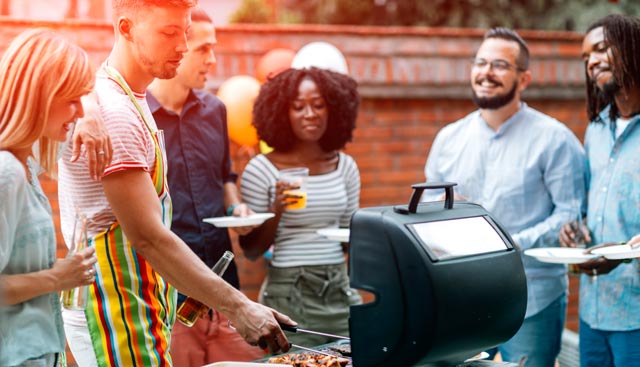
Summer Is a Time for Grilling – Are There Cancer Dangers You Should Be Aware Of?
As summer approaches and you prepare to fire up your backyard grill, you might be a bit concerned about some reports that you’ve heard on the news. Specifically, a few studies have suggested that there may be a link between eating grilled food and having an elevated risk of developing certain cancers, including prostate cancer and pancreatic cancer. But, there’s nothing quite like the taste and aroma of grilled food. Plus, grilling offers some legitimate health benefits as well. For instance, minimal oil is needed, and fats drip off the food during the cooking process. So, should you be worried about eating the food you grill?
The answer is less than straightforward. Some scientists believe that cooking food at very high temperatures can lead to the formation of potentially harmful compounds known as heterocyclic amines (HCAs) and polycyclic aromatic hydrocarbons (PAHs). HCAs and PAHs have been shown to lead to the development of cancer in animals that consume them in high quantities. However, no large-scale studies on humans have been completed to date.
Until there is more conclusive information available, there are some steps you can take to help ensure that you grill the safest and most delicious food. These include:
- Grilling over indirect heat – Most of the links between grilling and cancer center around meat that is cooked until it is charred. Rather than incinerating your burgers, turn down the heat and opt for “low and slow” cooking, which will help bring out the natural flavors of the meat without charbroiling or overcooking it.
- Flavor your food with spices and herbs – The volatile oils and other compounds that promote the flavor and antioxidant propensities of spices and herbs can also help prevent the formation of HCAs and PHAs. Some options you might try include rosemary, basil, thyme, sage, oregano, turmeric, onion powder and fresh garlic.
- Choose high-quality cuts of meat – Processed meats like hot dogs, sausage, ham and bacon have added nitrates that have been linked to cancer risk. Instead of grilling highly processed meats, opt for whole cuts of steak, chicken, ribs, fresh seafood, traditionally made sausage and burgers made of fresh ground beef, chicken, turkey, pork or lamb.
- Marinate your meat – Acid-based marinades, such as lemon juice, lime juice, vinegar, yogurt and wine, can add flavor and also help reduce the formation of HCAs.
- Add fruits and vegetables to the menu – Colorful fruits and vegetables have many healthy chemical compounds that can inhibit the DNA-damaging activity of HCAs and also promote liver function, helping the organ to remove harmful toxins from the body.
There’s no question that grilling is one of the greatest joys of summer. By taking some simple steps like these, you can protect your health without missing out on the hiss of the flame, the mouth-watering aroma of grilling food and the fun of a backyard barbecue.
If you have questions about how to reduce your personal cancer risk through healthy eating and other strategies, the experts at Moffitt Cancer Center can help. And, we’ll talk with you without a referral. You can request an appointment with an oncologist by calling 1-888-663-3488 or completing a new patient registration form online.
